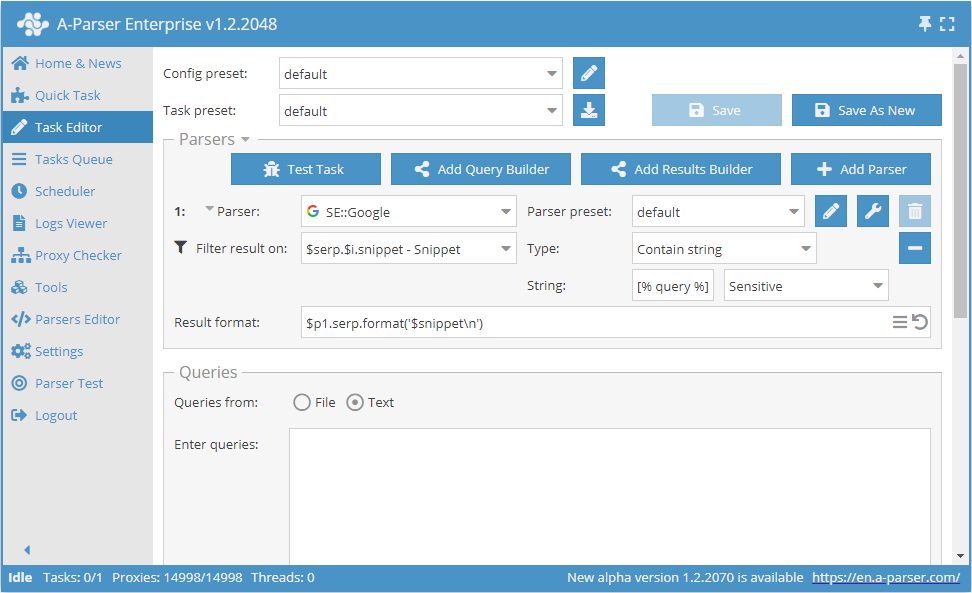Result Filters
In A-Parser, it is possible to filter results based on a set of defined rules and save only the necessary data in the output.
Using filtering
Main use cases:
- Saving only those links that contain a specific string inclusion (e.g., a CMS indicator)
- Filtering domain database by specific parameters (e.g., Yandex TCI from 300, RU language)
- Checking the server response (e.g., 200 OK or the presence of specific headers)
- Checking for the source query in the snippet
- Any other use cases where it is required to limit results based on certain conditions
Filters can be added in the Task Editor by clicking the tool icon next to the required scraper:
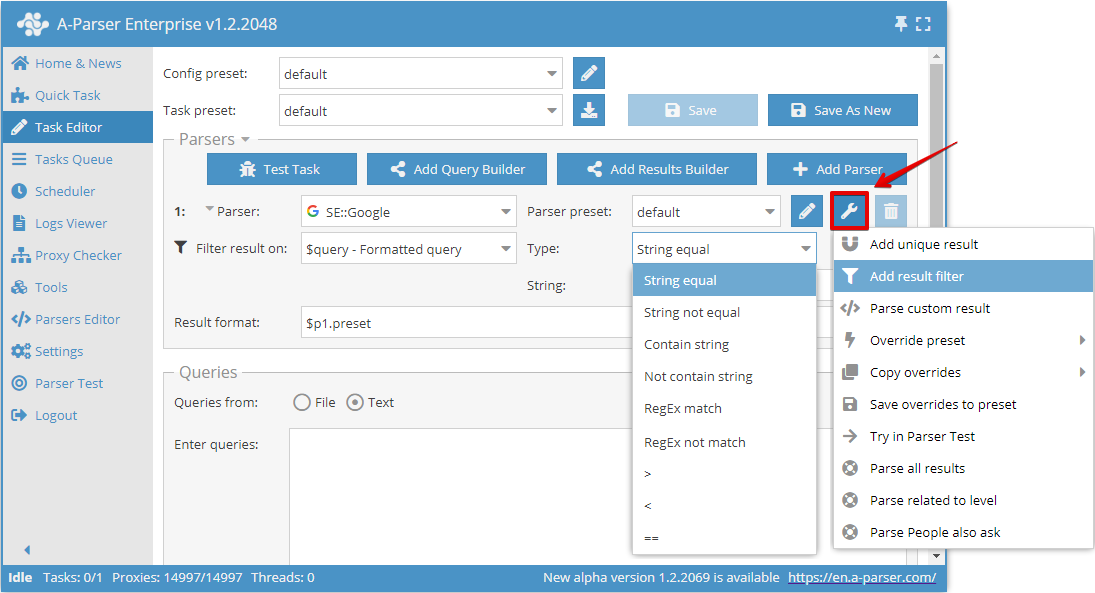
Filter types
You can filter both single results and arrays of results. There are several types of filters:
- By equality or inequality of strings
- By inclusion or absence of a substring
- By matching or not matching a regular expression
- Numerical values can be filtered by greater than, less than, and equality
See also: Result Representation
Usage features
- When filtering result arrays, only the results that meet the filter condition remain in the array
- When filtering simple results, if a result does not meet the filter condition, the entire result for this query is skipped, including when using multiple scrapers
- When using two or more filters in a task, a logical AND, is applied between them; in other words, the result will be saved if it meets the conditions of all filters simultaneously
- When comparing in the value specification field (string, regular expression, or numerical value), you can use the Template Toolkit templating engine, ; all variables similar to those for are available
Examples
Filtering by text on the page
Checking a site database for the presence of specific text on a page
We use a file with links as queries, and the result is a filtered file with links where the desired text is found.
We use the  Net::HTTP scraper to download the desired page, and save the query (the link we are checking) in the result. We filter the result
Net::HTTP scraper to download the desired page, and save the query (the link we are checking) in the result. We filter the result $data - the content of the downloaded page, , set the filter type to Contains string , and specify the string itself:
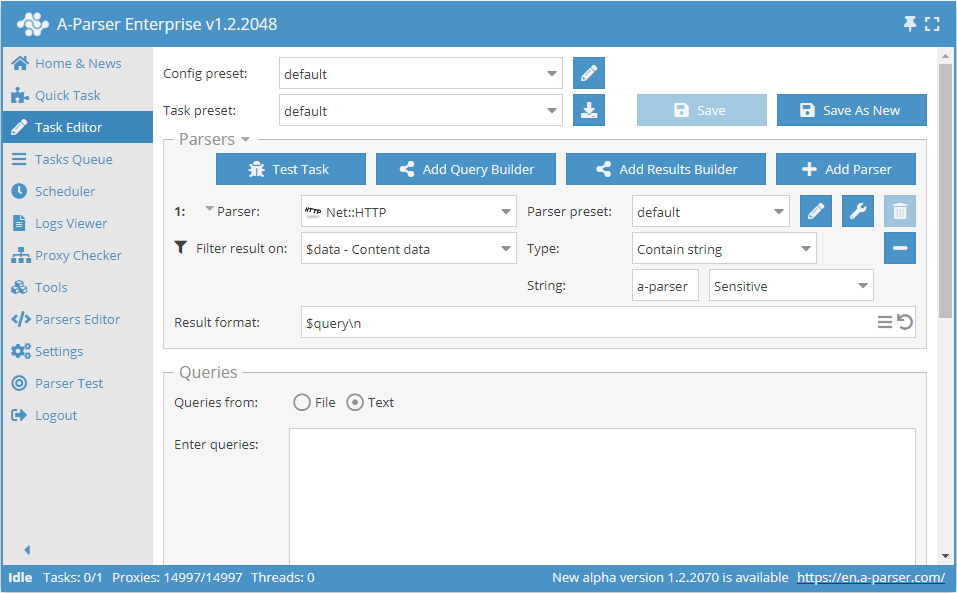
Filtering images by size
Filtering images by resolution
We filter the height and width of the image when scraping via  SE::Google::Images, , saving only those images that are larger than 500x500 pixels:
SE::Google::Images, , saving only those images that are larger than 500x500 pixels:
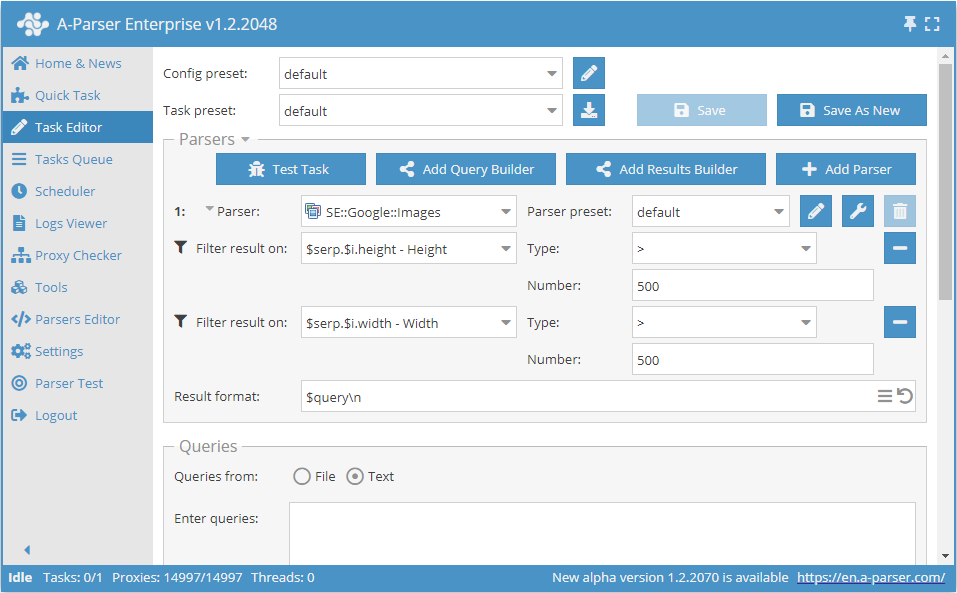
Filtering by several attributes
Filtering links by inclusion of any of several different strings
To filter links by several different strings, we will use the ability to specify regular expressions, ; for this, we write down several attributes separated by a delimiter:
showthread\.php
/forum/
viewtopic\.php\?t=
Note that regular expressions require escaping a number of characters
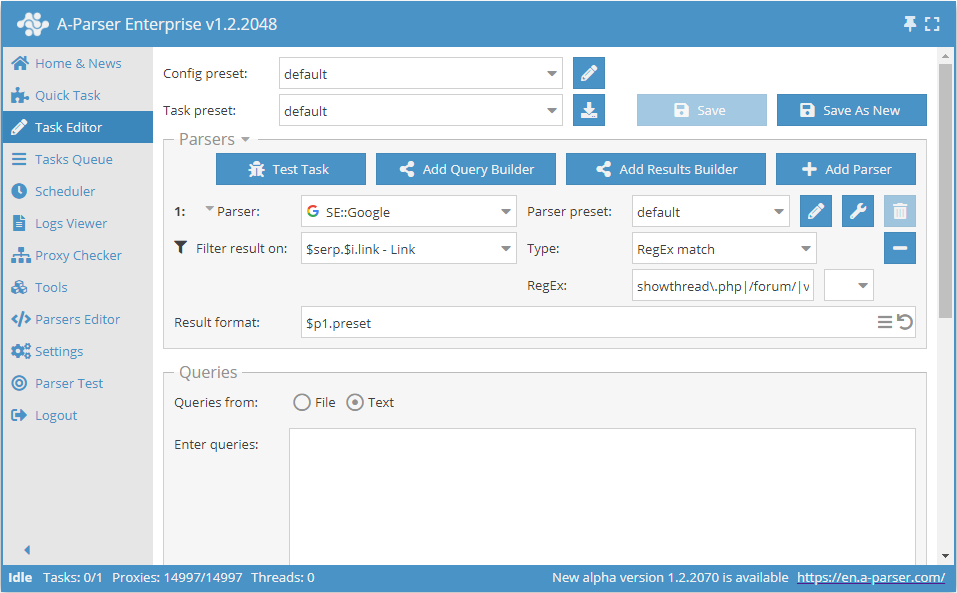
Using the query in a filter
Saving Google snippets that contain the source query
We explicitly specify the [% query %] - variable that contains the query as the comparison string, select Case sensitive for case-sensitive substring search:
